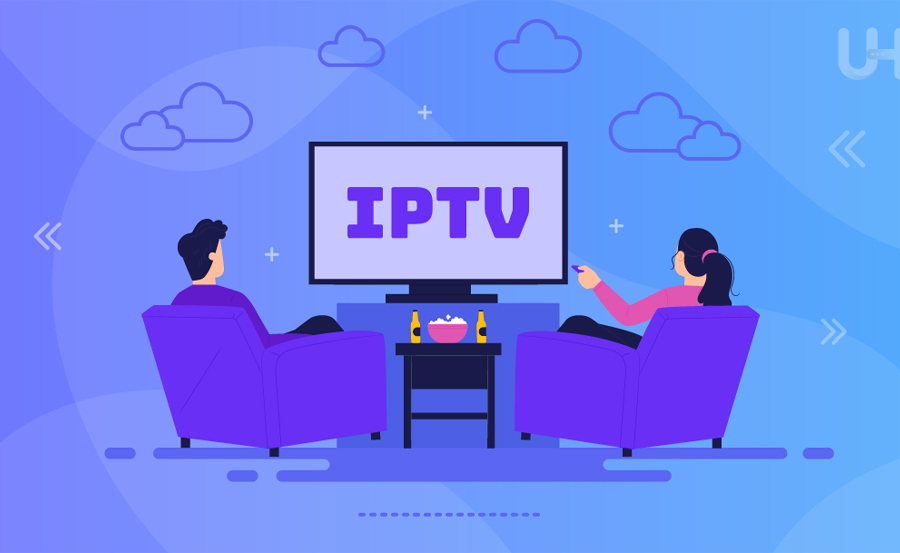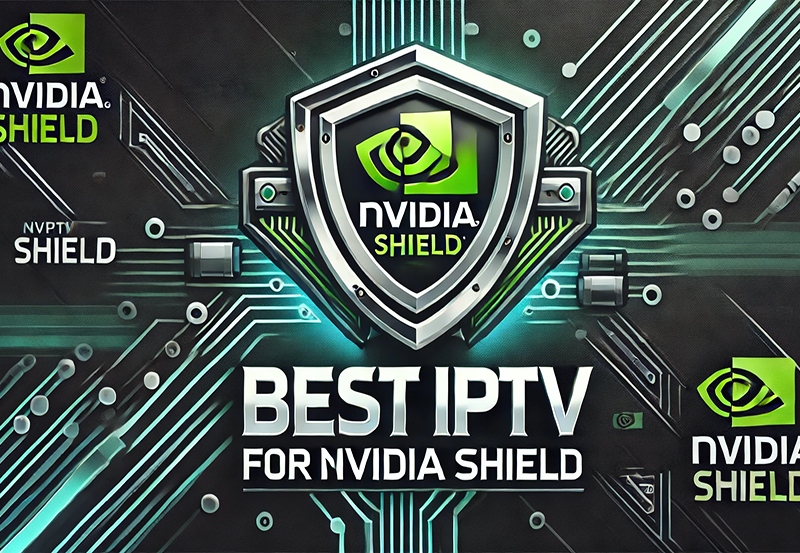IPTV (Internet Protocol Television) is a digital television delivery system that uses Internet Protocol (IP) networks to transmit television content. Unlike traditional broadcast methods such as satellite, cable, or terrestrial transmission, IPTV streams content through broadband internet connections. This technology allows viewers to access television programming on-demand, offering greater flexibility and control over their viewing experience.
Buy 1 Year IPTV and Enjoy Unlimited Content
Users can watch content on various devices, including televisions, computers, and mobile devices, seamlessly switching between them without interruption. IPTV differs from popular streaming services like YouTube or Netflix, although it shares some similarities in terms of accessibility and convenience. It provides a more comprehensive television experience, often including live IPTV channels, on-demand content, and interactive features.
Key features of IPTV include:
1. On-demand content access
2. Multi-device compatibility
Simultaneous streaming and recording capabilities
4. Interactive elements, such as gaming and social features
5. Personalized content recommendations
IPTV technology enables service providers to offer a wide range of content and services, combining traditional television programming with internet-based features.
This convergence of television and internet technologies represents a significant shift in how consumers access and interact with media content.
Method of Delivery
One of the main differences is the method of delivery. Cable TV is delivered through traditional coaxial cables, while IPTV is delivered over an internet connection. This means that rapid IPTV has the potential to reach a wider audience, as it is not limited by the availability of physical cables.
Viewing Experience
IPTV offers a more interactive and customizable experience for users. With IPTV, viewers have the ability to choose what they want to watch and when they want to watch it, whereas cable TV operates on a more rigid schedule.
Cost Comparison
Another important difference between IPTV and cable TV is the cost. In many cases, IPTV can be more cost-effective than traditional cable TV services, as it does not require the installation and maintenance of physical cables. Additionally, IPTV often offers more competitive pricing for premium channels and on-demand content.
Internet Connection Considerations
However, it’s important to note that the quality of the internet connection can greatly impact the viewing experience with IPTV, so users should consider their internet speed and reliability when making the switch from cable TV.
Key Takeaways
- IPTV stands for Internet Protocol Television and it delivers television content over the internet rather than through traditional cable or satellite means.
- IPTV offers a wider range of content and interactive features compared to cable TV, and it allows for on-demand viewing and personalized content recommendations.
- When considering streaming services for IPTV, it’s important to factor in the cost, content selection, and device compatibility to ensure a seamless viewing experience.
- Internet speed is crucial for optimal IPTV streaming, with higher speeds providing better quality and fewer interruptions during viewing.
- Data caps can impact IPTV streaming, so it’s important to be aware of your internet service provider’s policies and consider unlimited data plans if necessary.
Streaming Services: What You Need to Know
Streaming services have become increasingly popular in recent years, offering consumers a wide range of options for accessing on-demand content. These services allow users to stream movies, TV shows, and other media directly to their devices over the internet, without the need for physical media or downloads. Streaming services are often subscription-based, with users paying a monthly fee for access to a library of content.
Some popular streaming services include Netflix, Hulu, Amazon Prime Video, and Disney+. These services offer a wide range of content, including original programming, movies, and TV shows from various networks and studios. One of the key benefits of streaming services is the convenience they offer.
Users can access their favorite content from any device with an internet connection, making it easy to watch on the go or from the comfort of home. Additionally, streaming services often offer personalized recommendations based on a user’s viewing history, making it easier to discover new content. However, it’s important to consider factors such as internet speed and data caps when using streaming services, as these can impact the quality of the viewing experience.
Internet Speed: The Key to Optimal IPTV Streaming
Internet speed plays a crucial role in ensuring optimal IPTV streaming quality. The speed of your internet connection directly impacts the quality of the video stream you receive. For standard definition video streaming, a minimum speed of 3 Mbps is recommended, while for high definition video streaming, a minimum speed of 5 Mbps is recommended.
However, these are just minimum recommendations and higher speeds are always better for a smoother streaming experience. It’s important to note that internet speed can fluctuate throughout the day due to factors such as network congestion and peak usage times. To ensure a consistent streaming experience, it’s recommended to have an internet connection with higher speeds than the minimum requirements for your desired video quality.
Additionally, using a wired connection instead of Wi-Fi can help improve the stability and speed of your internet connection for IPTV streaming.
Understanding Data Caps and How They Affect IPTV Streaming
Data caps are limits set by internet service providers on the amount of data that can be used by a customer within a specific period, typically on a monthly basis. These data caps can have a significant impact on IPTV streaming, as streaming video consumes a large amount of data. For example, streaming high definition video can consume up to 3 GB of data per hour.
If you have a data cap of 500 GB per month, this could limit your ability to stream high definition content for an extended period. It’s important for consumers to be aware of their internet service provider’s data caps and how they may affect their IPTV streaming experience. Some providers offer unlimited data plans or have higher data caps for specific services such as streaming video, which can be beneficial for heavy IPTV users.
Additionally, users can take steps to reduce their data usage while streaming, such as adjusting video quality settings or limiting streaming to times when they have access to Wi-Fi.
Is IPTV Legal? Navigating the Legalities of Internet Protocol Television
Illegal IPTV Services: A Threat to Copyright Holders
These illegal services often provide access to premium channels and on-demand content without authorization from the copyright holders, which is illegal. This not only violates copyright laws but also deprives content creators of their rightful earnings.
The Risks of Using Illegal IPTV Services
Using illegal IPTV services can expose users to security risks such as malware and identity theft. Moreover, it can lead to legal issues, as users may be held accountable for copyright infringement.
Staying Safe with Legal IPTV Providers
To avoid legal issues and protect themselves from potential harm, consumers should only use reputable and licensed IPTV providers that offer legal access to content. By doing so, they can ensure a safe and enjoyable viewing experience while also respecting the rights of content creators.
Tips for Optimizing Your Internet Speed for IPTV Streaming
There are several tips and tricks that can help optimize your internet speed for IPTV streaming. One of the most important factors is choosing the right internet plan with sufficient speed for your streaming needs. It’s recommended to have an internet connection with higher speeds than the minimum requirements for your desired video quality to ensure a consistent streaming experience.
Using a wired connection instead of Wi-Fi can also help improve the stability and speed of your internet connection for IPTV streaming. Wi-Fi connections can be prone to interference and signal loss, which can impact the quality of your streaming experience. Additionally, minimizing other devices and activities that may be using bandwidth while streaming can help improve your internet speed for IPTV.
Another tip for optimizing your internet speed for IPTV streaming is to regularly monitor your internet connection and address any issues that may arise. This can include troubleshooting network equipment, updating firmware, and contacting your internet service provider if you experience persistent issues with your connection. By taking these steps, you can ensure that you have the best possible internet speed for an optimal IPTV streaming experience.
In conclusion, IPTV offers a modern and flexible way to access television content through an internet connection. When comparing IPTV to traditional cable TV services, there are several key differences in delivery method, cost, and user experience. Streaming services have become increasingly popular in recent years, offering consumers a wide range of options for accessing on-demand content.
Internet speed plays a crucial role in ensuring optimal IPTV streaming quality, and it’s important for consumers to be aware of their internet service provider’s data caps and how they may affect their IPTV streaming experience. The legality of IPTV services can vary depending on the specific service and how it is being used, so consumers should be cautious when using IPTV services and ensure that they are using legitimate and licensed providers. Finally, there are several tips and tricks that can help optimize your internet speed for IPTV streaming, including choosing the right internet plan, using a wired connection instead of Wi-Fi, and minimizing other devices and activities that may be using bandwidth while streaming.
If you’re interested in learning more about IPTV and how to watch it, you should check out this article on how to watch IPTV. It provides valuable information on the different methods and devices you can use to access IPTV content. Understanding the basics of IPTV and the various options available can help you ensure that you have the necessary internet speed and equipment for optimal streaming.






